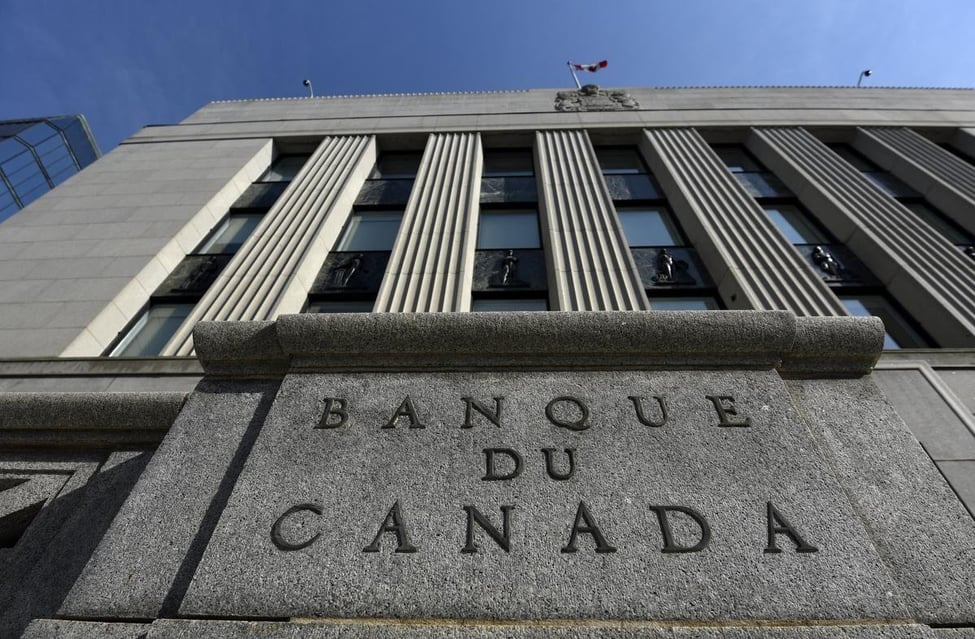The Bank of Canada has decided to hold steady on its interest rate, maintaining it at 5.0 per cent.
“But the central bank said in a statement accompanying the announcement that it was “prepared to increase the policy interest rate further if needed” as it “remains concerned about the persistence of underlying inflationary pressures.”
Canada’s annual inflation rate ticked back up to 3.3 per cent in July from 2.8 per cent the month before. The Bank of Canada warned Wednesday that it expects inflation to be “higher in the near term” thanks to rising gasoline prices before easing again.
Price pressures remain “broad-based,” the Bank said, and core inflation metrics have shown “little recent downward momentum in underlying inflation.”
But Wednesday’s rate hold was widely expected among economists as Canada’s economy has shown signs of slowing more sharply than the central bank had initially forecast.
Consumers are spending less on credit and Canada’s housing market continues to slow, the central bank noted in its statement.
The Bank of Canada also said that global slowdowns in China, alongside signs of easing in the Canadian jobs market, were among the factors supporting a hold.
The Bank of Canada’s policy rate sets the cost of borrowing for Canadian lenders and informs rates consumers pay on debt such as mortgages. A rapid rate hike campaign since March 2022 has tried to cool the economy and discourage spending in an effort to rein in rampant inflation — a cause shared by many central banks around the world.
The effects of interest rate hikes typically take between a year and 18 months to be fully felt on the economy, and the Bank noted that “lagged effects” of previous rate increases will continue to impact inflation.
The Bank of Canada said in its updated forecasts in July that it now expects inflation to hit the two per cent target by mid-2025.
The Bank of Canada’s pause marks the third time it has left the key rate unchanged this year and follows two back-to-back hikes of a quarter-percentage point in June and July.
The central bank also said Wednesday that government spending in the second quarter was contributing to a rise in domestic demand.
Are rate hikes done?
The Bank highlighted strong wage growth, corporate pricing and inflation expectations as metrics it is watching in determining where to take rates next.
Doug Porter, the chief economist at BMO, said in a note to clients on Wednesday that while the door is open for future hikes, barring an unexpected surge in economic growth this quarter, the Bank of Canada is “likely done with rate hikes.”
While inflation is likely to tick back up to around four per cent in the coming months, Porter said that the slowing economy will bring inflation back down to the two per cent target over time.
CIBC chief economist Avery Shenfeld said in a note to clients Wednesday that he expects that jobs data in the months to come will show enough “slack” in the labour market to keep rates at a peak of 5.0 per cent.
“That said, we’re still a long way from a full all-clear statement from the BoC, let alone any mention of rate cuts,” he wrote.
Porter, too, suggested that talk of rate cuts was premature. Even talking about a formal rate pause could whip up markets and consumers in a way that threatens the Bank of Canada’s progress to date in taming the hot economy, he warned.
“Policymakers clearly do not want a repeat of earlier this year, when a short-lived pause sparked thoughts of eventual rate cuts, in turn firing up housing,” Porter wrote.
Rate hold a 'welcome relief': Freeland
Finance Minster Chrystia Freeland said in a statement Wednesday morning that the Bank of Canada’s decision to leave its policy rate unchanged was “welcome relief” for Canadians.
While she reiterated the central bank’s independence in setting monetary policy, she acknowledged that higher interest rates are “weighing heavily on Canadians” and said the Liberal government would use its tools “to ensure that interest rates can come down as soon as possible.”
The Bank of Canada has become a hot political topic beyond the federal level as well, with B.C. premier David Eby, Ontario premier Doug Ford and Newfoundland and Labrador premier Andrew Furey writing letters to the central bank in the past week urging an end to rate hikes.
Ford posted on X, formerly Twitter, on Wednesday morning to respond to the Bank of Canada’s hold decision, writing just, “Good.”
Source: https://globalnews.ca/news/9941362/bank-of-canada-interest-rate-september/
Photo: Justin Tang/The Canadian Press file photo

